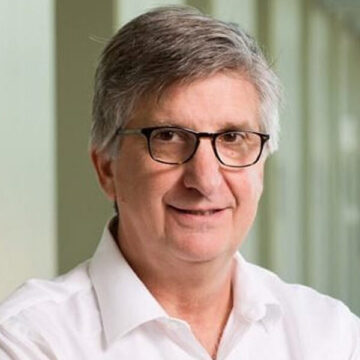
Pat Levitt, PhD

Pat Levitt, PhD, a Senior Fellow at the Center on the Developing Child, is also the Science Co-Director of the National Scientific Council on the Developing Child, an initiative of the Center. He is the Chief Scientific Officer, Vice President, and Director of The Saban Research Institute of Children’s Hospital Los Angeles (CHLA). He is the Simms/Mann Chair in Developmental Neurogenetics at CHLA, and the W.M. Keck Provost Professor of Neurogenetics at the Keck School of Medicine of the University of Southern California (USC).
He received his BA in biological sciences from the University of Chicago; received his PhD in neuroscience from the University of California, San Diego; and completed a postdoctoral fellowship at Yale University. Dr. Levitt has held leadership positions at the University of Pittsburgh, Vanderbilt University, the USC, and CHLA. Dr. Levitt has served as a member of the U.S. National Advisory Mental Health Council for the National Institute of Mental Health, and is a member of the National Academies of Science, Engineering, and Medicine Committee Report, “Vibrant and Healthy Kids: Aligning Science, Practice and Policy.”
He is also on the editorial boards of 10 scientific journals, including his current role as editor-in-chief of Mind, Brain, and Education. He is an elected member of the National Academy of Medicine, and an elected Fellow of the American Association for the Advancement of Science, and the Dana Alliance for Brain Initiatives. In his capacity as Science Co-Director of the National Scientific Council on the Developing Child, Dr. Levitt has spoken to groups of policymakers, service providers, and business leaders about making wise decisions regarding child brain and physical health program investments in 42 states, Mexico, and Canada.
Dr. Levitt has been funded continuously by the National Institutes of Health and numerous private foundations since 1982. His laboratory does both translational and clinical research. The program focuses on identifying the factors that assure healthy development of brain architecture, which controls learning, emotional, and social behavior. His clinical research studies address how toxic stress responses in infants and toddlers may be detected as early as possible in order to develop best practices for promoting resilience and better prevention and intervention. He also engages families in research who have a child with autism spectrum disorder and co-occurring medical conditions, such as gastrointestinal disorders. He has published over 300 scientific papers.